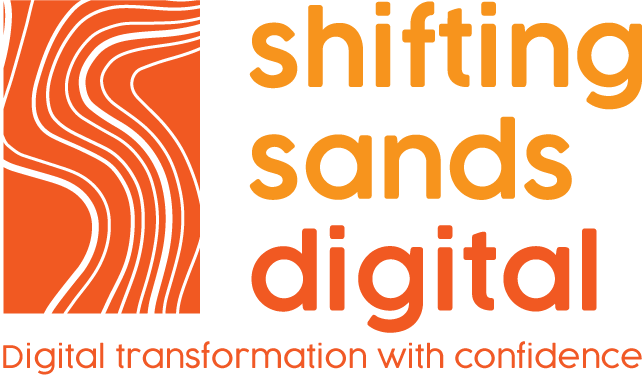Bernard Marr Contributor Forbes Magazine, November 27, 2023
In my book Future Skills: The 20 skills and competencies everyone needs to succeed in a digital world, I look at the skills everyone will need over the next 5-10 years. But, here, I want to look at the more immediate future. Businesses are moving toward skills-based recruitment and workforce development, driven by a need to unlock the transformative potential of new technologies.
This raises the critical question: if you’re a jobseeker or an employer looking to ensure success in 2024, what are the skills you should be developing?
Anyone can see that we’re clearly living through the early stages of the AI age. But the technology isn’t quite there yet to realize the utopian vision of a world without work. And most of us aren’t ready to surrender to being completely redundant just yet.
This means the skills that will be most in demand fall into one of two categories. They either involve enabling organizations to unlock the huge potential of frontier technology and tools. Alternatively, they are about maximizing the value of our human qualities and abilities that machines can’t hope to match.
In other words, some are technology skills, and some are “soft skills.” But what they often have in common is that they allow us to leverage particular skills in a world where machines are becoming more capable by the day.
So, let’s take a look at 10 skill sets that I think will be truly valuable for the next 12 months and probably far beyond.
Generative AI
The advent of generative AIs like ChatGPT has been described as an “iPhone moment” for AI. Almost overnight, just about anyone can use it to create, automate and save time across their professional and everyday lives. However, qualities and abilities are needed to spot opportunities, develop efficient solutions, manage change, and address ethical implications. These will be among the most valuable and in-demand skills throughout 2024.
Sustainability Skills
Businesses are recognizing the grave importance of ensuring they’re operating in a way that’s sustainable and causes minimum impact on the environment. Net zero targets are increasingly seen as strategic business priorities, and a commitment to sustainability is often required by smaller businesses looking to partner or work with enterprises and government bodies. This means that skills around identifying and implementing green solutions are highly prized.
Project Management
Whether you are managing humans or machines, there’s a growing need for individuals with the skills to pull together people, technology and problem-solving skills. Taking high-level oversight, setting strategic objectives and prioritizing work and resources is still beyond the capabilities of business AI tools. Those working in these roles, though, have unprecedented opportunities to harness AI to assist in everything from prototyping to research, scheduling, testing and compliance.
Communication Skills
Effective communication is a crucial element of the business skill set. Now more than ever, there’s a need for those who can identify messaging opportunities and bridge communication gaps across organizations. There will be more roles for those able to interpret insights of data analytics and communicate them in human language to whoever needs to take action. And as communicating with machines in natural language becomes the norm, organizations need humans with the ability to talk to them in the way that gets the best results.
Clinical Healthcare Skills
The world faces a shortage of healthcare professionals, and many tasks on the frontline of healthcare are a long way off being fully automated—if they ever can be.
Doctors, nurses and other health professionals are increasingly able to augment their skills with AI tools. But human qualities like emotional intelligence and empathy will always be critical to their roles. In developed economies, healthcare jobs are also often relatively well-paid reflecting the specialist skills, qualities and experience needed to do the job well. Working in this field has always been seen as a way for hard-working individuals from any background to build a stable career with security and prospects, and this will still be true in 2024.
Data Skills
The AI revolution is built on data, and understanding how to transform it into value is becoming increasingly important to business success. To be ethical and trustworthy for important tasks like improving healthcare and furthering scientific research, AI also needs to be transparent and explainable. Data science skills are essential here to help us ensure machines use data we can trust to make decisions we can understand.
Interpersonal Networking
Those with the ability to make friends with the right people will always go far. Building a network of others who can help us achieve our aims as well as assist with our personal development is a critical skill. This means developing the ability to build bonds based on trust and common goals will be as valuable as ever in 2024, as technology opens up new opportunities for growth and innovation for those who are ready to act on them.
Cloud Computing Skills
Between 2022 and 2030, the global market for cloud computing is expected to grow from $570 billion to close to $2.5 trillion. This means there will be a growing demand for those with the technical skills to assist businesses large and small with their migration to the cloud. Professionals skilled in the tools and platforms of cloud computing will remain relevant and competitive throughout 2024 and beyond.
Machine Learning Engineering
Of course, powering the AI revolution means there will be a growing demand for humans with the technical skills to implement it. The World Economic Forum Future of Jobs 2023 report states that “AI and machine learning specialists top the list of fast-growing jobs.” In 2024, despite advancements in generative AI that mean even the technically unskilled can build AI apps, and in self-replicating AI that creates itself (AutoML being one example), human ML engineers will still be in high demand.
Cybersecurity Skills
Data breaches, cyber-attacks and hacking attempts are all increasing in frequency and severity. So, too, are the penalties for businesses that fail to adequately protect their customers’ data. Cybersecurity is an arms race, with ill-intentioned individuals, groups and even state-sponsored actors competing with security specialists to deploy faster, more powerful and more intelligent technology against its opposition. All these factors mean that skills around building security and resilience will be some of the most in demand in 2024.

